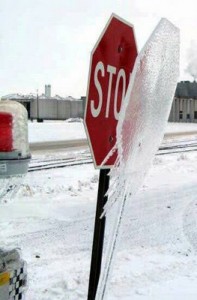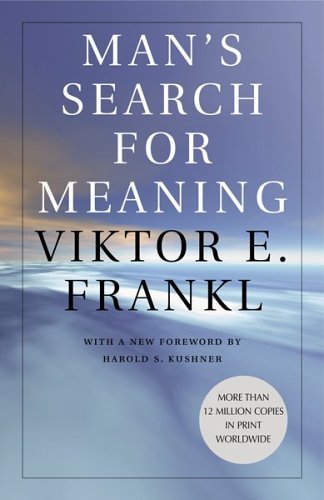Ice Sun Wind
 …a cold, blue light enters the window I feel enveloped in sap, or as if a clot of sap but also down the throat, into the lungs, sludging along tributaries, cold sap, and I was going to write–jacked on Coffee3–but now I will write little.
…a cold, blue light enters the window I feel enveloped in sap, or as if a clot of sap but also down the throat, into the lungs, sludging along tributaries, cold sap, and I was going to write–jacked on Coffee3–but now I will write little.
How does the weather affect your work?
An anecdote: One year Norman Mailer decided to winter in Provincetown. While this locale is famous for authors and their doings (and undoings), most everyone agrees you do not purposely winter in the region. Mailer knew this, but wanted to be alone, to focus on a novel. He got no writing done. Why? As he put it, in a bit of word-play: “You must watch your drinking.” He then explained that he found himself miserable, unproductive, and eventually reduced to sitting in front of a tall mirror, pouring bourbon into a glass, and staring into his face–In a phrase: watching his drinking.
Animal Instincts: Destroying the Cult of Reason
“One major lesson I had to learn was to become empty and dumb and trusting enough to write every day. For this I needed, at times, blind patience, no theories about art.” –Larry Levis
Thinking about the intangibles of writing is like walking around, drunk, in a pitch-black room the size of an airplane hangar, with ghosts, with disembodied voices, with naked doppelgangers, choking on the fear of bumping into something much larger, much hairier than yourself.
I believe that’s why we talk about craft, the building blocks of a piece of art—light, shadow, line break, sentence. These are necessary to the physical architecture of the thing, certainly, and they’re quantifiable. Humans, we, desire formula and quantitative resources, names and registers. These are easier than dark, open spaces.
But what about the intangibles, the anti-craft, anti-move, anti-self-consciousness of making? What about the inexplicable creates lasting art, something more than pop culture referentiality, more than tricks-of-a-trade? What a friend of mine calls irreducibility?
Many poets and artists have tried to define the “it” factor. Many, to my eye, have succeeded in some way but never in a flesh-and-blood way. Never in a follow-these-eight-easy-steps way. For that, I’m glad.
Garcia Lorca had his duende, hovering at the lip of the wound; Ginsberg said, “the only poetic tradition is the voice out of the burning bush.” Keats sought the capability “of being in uncertainties, Mysteries, doubts without any irritable reaching after fact & reason.” I could go on forever, maybe.
There’s an interview with Aline Kominsky-Crumb in the Nov/Dec 2009 issue of The Believer. In it, Kominsky-Crumb describes a similar abstract quality to her comic-making:
“I’m so emotionally charged when I’m doing that, I can’t really control what comes out. It just comes out in a very direct form. In a way, I’m lucky that I can access that. In another way it’s horrible because I can’t refine it or improve it and make it look more, like, acceptable.”
Craft is a given, right? You love an art form so you study it; you dissect its structure. You practice, you imitate. You count syllables, maybe. You look at possible moves, maybe. Sometimes you go to school to understand and synthesize the great traditions in the company of other humans so you don’t have to read poems to your dog all the time. Sometimes you benefit from school. Sometimes you are ruined and reborn [see the Kominsky-Crumb interview for more on that].
But then what? Inevitably, you ask yourself, why does this poem make my heart sing? Why do I feel like I could jump off a building after I read this book? Or, like Dickinson, why does this thing make me feel physically like the top of my head has been taken off?
Michael Kimball Guest Lecture Series (1): Openings

[We’re very excited to have today and in coming weeks a series of guest posts from the one and only Michael Kimball, author of three novels included the much lauded Dear Everybody. Enjoy! — BB.]
I’m doing a talk-thing at a free writing conference and the talk is going to be called something like “The One-Hour Crash Course in Fiction Writing.” I’m going to try to cover ways to think about beginnings, language, syntax, details, voice, character, plot, story, revising, endings, etc. I had the idea because it has always been little bits of advice, something that I could hold in my head — whether from a teacher, from something I read, or from another writer — that were the most useful thing to me as I tried to figure out what I wanted to do as a writer. So this will be the first in a series of guest posts about some of the elements of fiction. The posts will include the ways that I think about different elements of fiction, the ways other writers and teachers do, and, hopefully, it will lead to a larger discussion – how you think about it, other ideas from other writers and teachers, etc. OK, here we go:
Openings, there are lots of ways to think about them. Chris Offut said, “The secret is to start a story near the ending.” Elmore Leonard said, “Never open a book with weather.” One of my old teachers used to talk about the importance of the first sentence, the need to overcome of the inertia of nothingness, to immediately capture the reader’s attention. She amended that to say that the first sentence needed to be declarative in some sense, to have a particular syntax and diction, to have resonant acoustical properties. Those first sentences that immediately come to mind, many of those are first sentences that do that. And there are lots of examples, below, from people who are thinking about first sentences.
Dear Memoirist, Do / Do Not Get Bent, Love Everybody


Over at The Daily Beast, Taylor Antrim is complaining about memoirs, in particular Alex Lemon’s Happy and Nick Flynn’s The Ticking is the Bomb. Over at The Rumpus, Stephen Elliott has responded with a defense of the memoir. Which you should go check out. Meanwhile, I’m going to harp on a point that neither Antrim nor Elliott raised (though Elliott came awfully close).
Antrim’s essay is mostly a re-tread of fairly (or extensively) well-mapped territory, but his charmingly wrong-headed thesis actually succeeds in opening up an interesting discussion, albeit one he doesn’t ever get around to having. It’s right there in his piece’s headline- “Why Some Memoirs Are Better As Fiction.” First of all, what he means to say is that “some memoirs would be better as fiction,” but stick a pin in that and let’s move on.
Antrim unaccountably assumes that the writer sat down and chose between these and only these two mediums: the novel and the memoir. If you don’t accept this conceit, then his entire piece makes no sense. I would, therefore, like to point out to Antrim, that both Alex Lemon and Nick Flynn (despite the latter’s previous success as a memoirist) are poets by trade, and that their decision to write memoir has less to do with any kind of turning-away from fiction (which was probably never of significant interest to them anyway) than it does with the general sustained interest in personal nonfiction narratives across the board, and the kinds of opportunities that shift might afford to an early- or mid-career writer with a decent reputation and public profile, but a primary vocation that nobody is willing to pay them to practice (though they may yet be paid handsomely to teach other people to practice it, but let’s stick a pin in that, too).
Flynn and Lemon are only two of the latest in a burgeoning tradition of prose memoirs penned by poets, one which in recent years has included Maggie Nelson’s Jane, Sarah Manguso’s Two Kinds of Decay, and Katy Lederer’s Poker Face: A Girlhood Among Gamblers, and so on. Flynn’s own massively successful first memoir, Another Bullshit Night in Suck City, might have been the catalyst for this current wave. (Not to suggest that the poet-memoir is a new phenomenon, only that this is its newest iteration.) Many poets already write what can fairly be called autobiographical poetry, and so it only makes sense that, with Flynn’s first prose book as the example, other people got the idea that they could funnel that same poetry-energy into a medium that would command more rather than less critical attention and financial reward. This is not to say whether any of the particular books I’ve named are good (or bad–I’ve not read them), or what this trends means with concern to poetry and/or literature in general, but it seems to me that for the first time in at least a generation, contemporary poets are surveying a field that is expanding rather than contracting. Bully for them.
And just to end where we started–with Antrim–a large part of his complaint is that the memoirs in question may be meditative or ruminative, and densely packed with arresting prose and striking images, but they are light on plot, story, or narrative arc. Which is why he thinks he is describing failed novels. He seems to not realize that he may actually be describing successful poems.
EPidemIC Poetry, a modified Exquisite Corpse
 Take a poem or very short prose piece you really like and send it to a small number of poet/prose writing friends. Let’s say five. Send along this message:
Take a poem or very short prose piece you really like and send it to a small number of poet/prose writing friends. Let’s say five. Send along this message:
“This is the spreading of an infection. Read this piece of writing. Become infected by it. Respond to it with a piece of writing that includes a line or a phrase from it. Send the results to the author of this piece of writing. (If you do not have time to do so, you have resisted the infection. Thank your immune system.) Also, send the results to five more people and infect them. Send this message along with it. When you receive the results, return them all to the person who started the infection.
“This infection began with _____.” (Fill this in only if you are the first person to start the infection.
Collect the results. See how the infection has spread. See how the virus has mutated.
At some point, tell us how it went.
Collectors Of
 Writer: What do you think about when placing stories or flashes or essays or poems or whatnot in a collection?
Writer: What do you think about when placing stories or flashes or essays or poems or whatnot in a collection?
Order? Disorder? Intent?
Reader: How do you ingest a collection? Start to finish, left to right, top to bottom—blar!
Reader: A while back I was reading Drift and Swerve by Samuel Ligon and found myself intrigued by Nikki, a reappearing character. So I read all the Nikki stories first, then read the others.
Writer: Is a collection an album? Greatest hits, do you hear a single, does anyone remember the term concept?
Reader: This Richard Russo collection, it had a spectacular story, one, and the others…well.
Seems like you can crag in more tone shifts, more gnashes, poet. Can the prose writer do the same, or do these texts need to have some similarity?
You say hybrid, I say what?
Let’s bale these tendrillic texts, bathtub them, and call everything a novel! So clean!
OK.
Was just wondering. Etc.
How Do You Deal with Endings?
 In an hour, a car service is coming to get me. It will bring to me to La Guardia, where I will wait two hours for my flight to arrive. On that flight, I will hopefully not be seated next to people who smell or who make smacking noises with their mouths, nor people who are feeling talkative. I will probably read and work on some stuff for school. Mostly what I will do, probably, is I will listen to Ryan Adams–it has to be music completely disconnected from any event–and stare forward, and wonder how it is possible that I have left the place where I, only so many hours prior, was.
In an hour, a car service is coming to get me. It will bring to me to La Guardia, where I will wait two hours for my flight to arrive. On that flight, I will hopefully not be seated next to people who smell or who make smacking noises with their mouths, nor people who are feeling talkative. I will probably read and work on some stuff for school. Mostly what I will do, probably, is I will listen to Ryan Adams–it has to be music completely disconnected from any event–and stare forward, and wonder how it is possible that I have left the place where I, only so many hours prior, was.
For better or for worse–when it comes to the everyday, doubtless for worse–endings mean the most to me. Reading, writing, “relationships,” split-second goodbyes, drawn out goodbyes that never satisfy, leaving New York City after what amounts to a month here. While reading, I’ll cover up the last few sentences of a book–any book–with my hand until my eyes get there. I almost hold my breath. An ending is an opening, a deep and unmendable rending. While writing, I’ll ensure that the ending unravels, de-sutures, overturns what precedes it. I can control my endings on the page. I want them to spill the weight of the work into a neuter space or something.
Off the page, I am a masterful botcher of endings.
A Child’s Mind, Travel and Failure
This morning as I was catching up on MobyLives I came across a video of David Foster Wallace discussing the productive failure of traveling. It was filmed in 2006 while he was in Italy and if you watch it you will hear DFW say, “Everything that is a failure is also a victory,” and you will see Jonathan Franzen chuckling to himself and leaning back in his chair, which, as we all know, is Jonathan Franzen’s favorite pastime. In any case, 2006 was the first (as only?) time that DFW had been to a country where English was not the predominate language and his failure to be able communicate caused him to feel like a child, or more accurately an infant. He had to pay closer attention to others faces and gestures. He had to slow down.
I am leaving the country on Wednesday and I won’t be back until winter has left this hemisphere. I’m doing this for a number of reasons but the most interesting of which is to write. I suppose what I’m writing doesn’t matter much because any plans I have now are sure to change. The point, I think, is to put myself in an environment where I am clueless, where I have to pay closer attention to the banal, where I am forced to adapt, to learn and to fail.
i may be old but i can still read
Alec’s post got me thinking. See: in a couple months, I’ll be a decade older than Alec. A decade! Whereas those of you already past your twenties will kick me for saying it: I’m already mourning the loss of my youth. I’ve been mourning it since I turned 24! (And to be fair, I didn’t really start writing until then…)
But why? Why are people so revved up about Alec’s post? Why is age such a sensitive issue?
One day, I’ll probably look like this:
 Well, ok, maybe I won’t be wearing the hat & I won’t be missing teeth, but my point is that one day, I’ll be old & you’ll be old & Ryan Call hopes he’ll still be blogging here when he’s in his 50’s.
Well, ok, maybe I won’t be wearing the hat & I won’t be missing teeth, but my point is that one day, I’ll be old & you’ll be old & Ryan Call hopes he’ll still be blogging here when he’s in his 50’s.
I’m getting off point though.
There are virtues in being young, sure. Virginia Woolf thought the best “season” for reading was between 18 and 24. I’m way past my reading prime! And the truth of it is, I care a lot more about my “reading prime” than my “writing prime.” Writers can write whenever. There’s no cap, no time limit. If anything, when I’m as old as the woman in the picture, I’ll look back on the all books I published in my 20s and be appalled. Or at least I hope that happens.
What Does It Mean to Be a Young Writer Today?

Take our own Ken Baumann. He’s twenty, and already toying with a style, voice, and rhythm all his own–see the newest New York Tyrant for proof. His work is at once strange and familiar, careful and mindful without constraining a sense of freedom which announces the promise of novelty, of a literature which is no longer merely literature. If any of that makes any sense to anyone. What I mean to say is, Ken is a young–very young, college-aged–prose stylist. Perhaps that is a rare feat. Perhaps it is not. But not often does an artist so young fulfill the promise of youth by making it new.
Take Zachary German. He’s twenty-one, I believe, and while he indeed belongs to a certain class of writers, his style, at a very original pace, moves toward a terminal space, a degree-zero. His work has much to say about contemporary art, culture, and values, on both a level of doing and being. In many ways, he walks the talk of a young Camus. He’s twenty-one. How?
I’m nineteen. I strive for an immediate stylism in my work. Whether or not I’m successful I cannot say. READ MORE >


